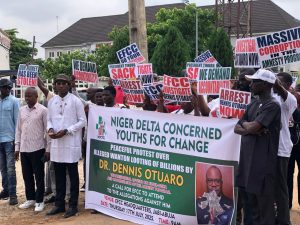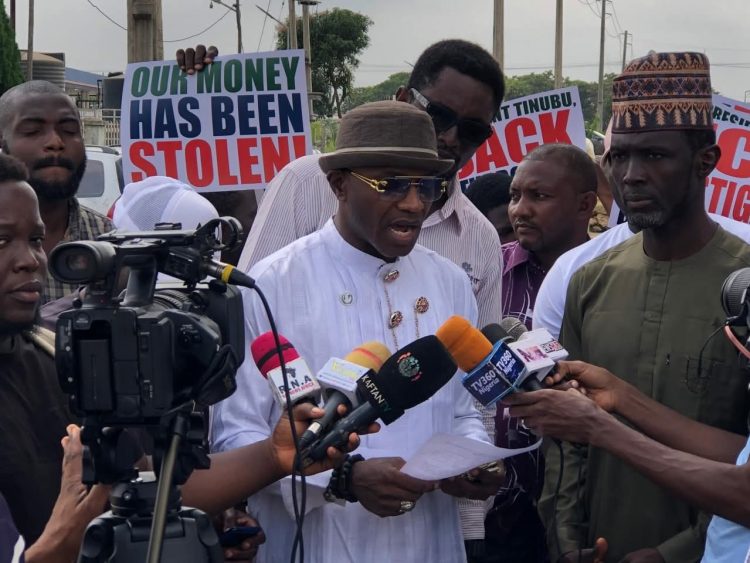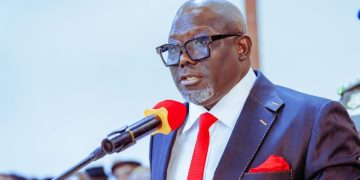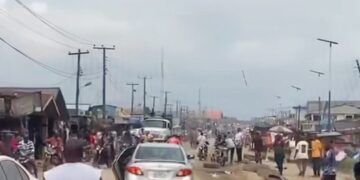A coalition under the banner of Niger Delta Concerned Youths for Change has issued a strong call for justice and accountability in the management of the Presidential Amnesty Programme, accusing its current leadership of widespread corruption and mismanagement.
During a protest held in Abuja on Thursday, July 17, 2025, outside the headquarters of the Economic and Financial Crimes Commission, EFCC, the group displayed placards with various inscriptions, levelling serious allegations against Mr. Dennis Otuaro, the Special Adviser to the President on Niger Delta Affairs and Coordinator of the Amnesty Programme.
They accused Otuaro of turning the initiative—meant to rehabilitate and empower ex-agitators in the oil-rich region—into a “private business empire” for personal gain and political patronage.
According to the group’s spokesperson, Comrade Lion Ogorry, previous petitions have already been submitted to the Economic and Financial Crimes Commission (EFCC), outlining alleged acts of “massive corruption, reckless mismanagement of funds, and the awarding of questionable contracts to cronies and unqualified companies.”

“The Amnesty Programme was established to restore hope and foster peace in the Niger Delta,” Ogorry said. “But instead of providing meaningful empowerment and development opportunities for our youths, the program under Mr. Otuaro’s leadership has become a conduit for enriching a few individuals.”
The group is calling on the EFCC to immediately launch a full-scale investigation into all financial transactions, contract approvals, and operational procedures under Otuaro’s tenure. They are also urging President Bola Ahmed Tinubu to intervene without delay, warning that continued mismanagement of the program could threaten the fragile peace in the Niger Delta.
“The time has come to take a firm stand, ”Ogorry declared. “We will not fold our arms while corruption robs our youths of opportunities. We demand transparency, accountability, and justice—without delay.”
The Presidential Amnesty Programme was launched in 2009 as a strategic intervention aimed at disarming, rehabilitating, and reintegrating former militants in the Niger Delta region. Over the years, however, it has faced criticism over transparency issues, with periodic protests by beneficiaries alleging exclusion, unpaid stipends, and unfulfilled promises.
With the periodic protest, pressure is mounting on the federal government and anti-corruption agencies to take decisive action and ensure that the programme fulfils its original mandate of fostering peace and sustainable development in the Niger Delta.













